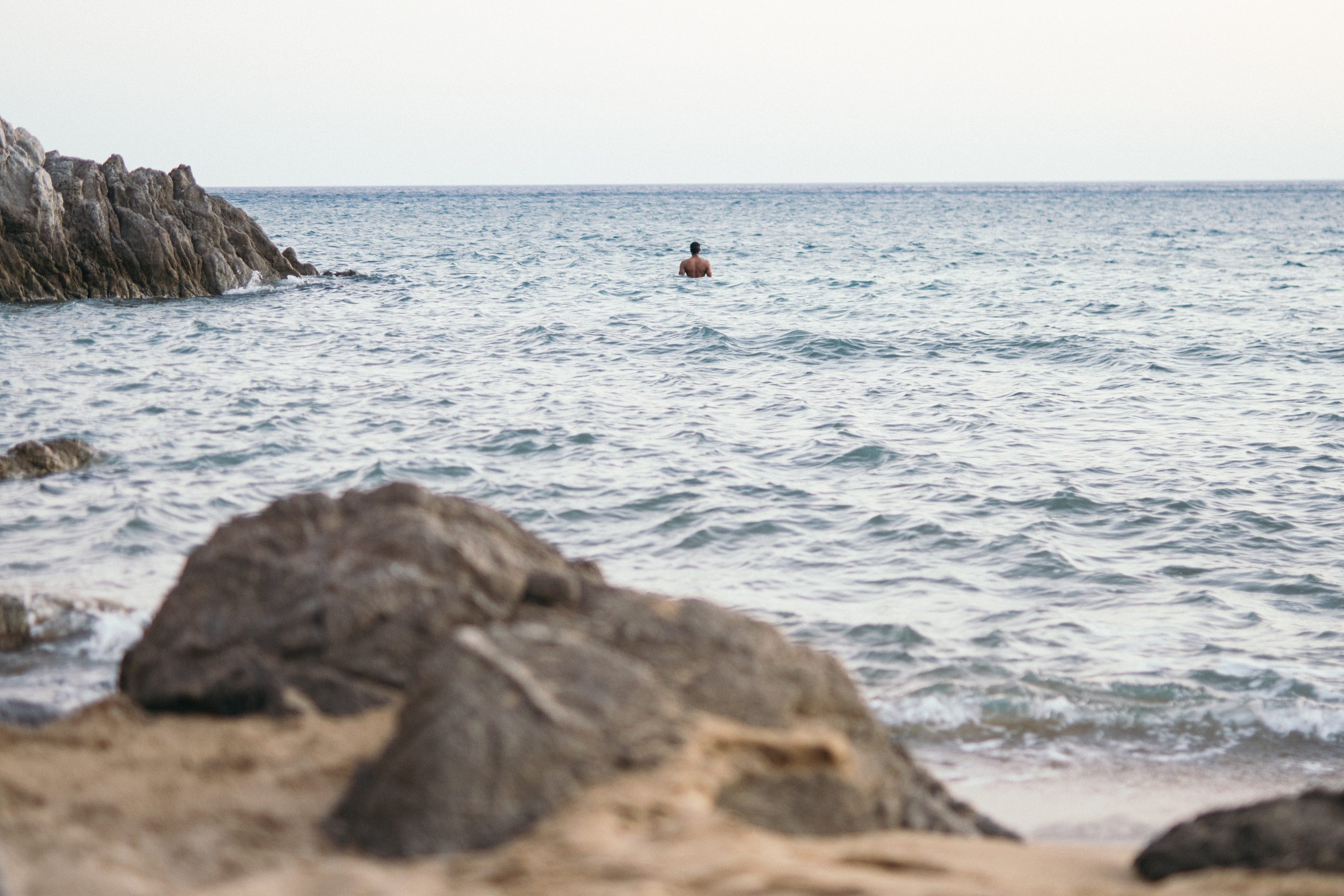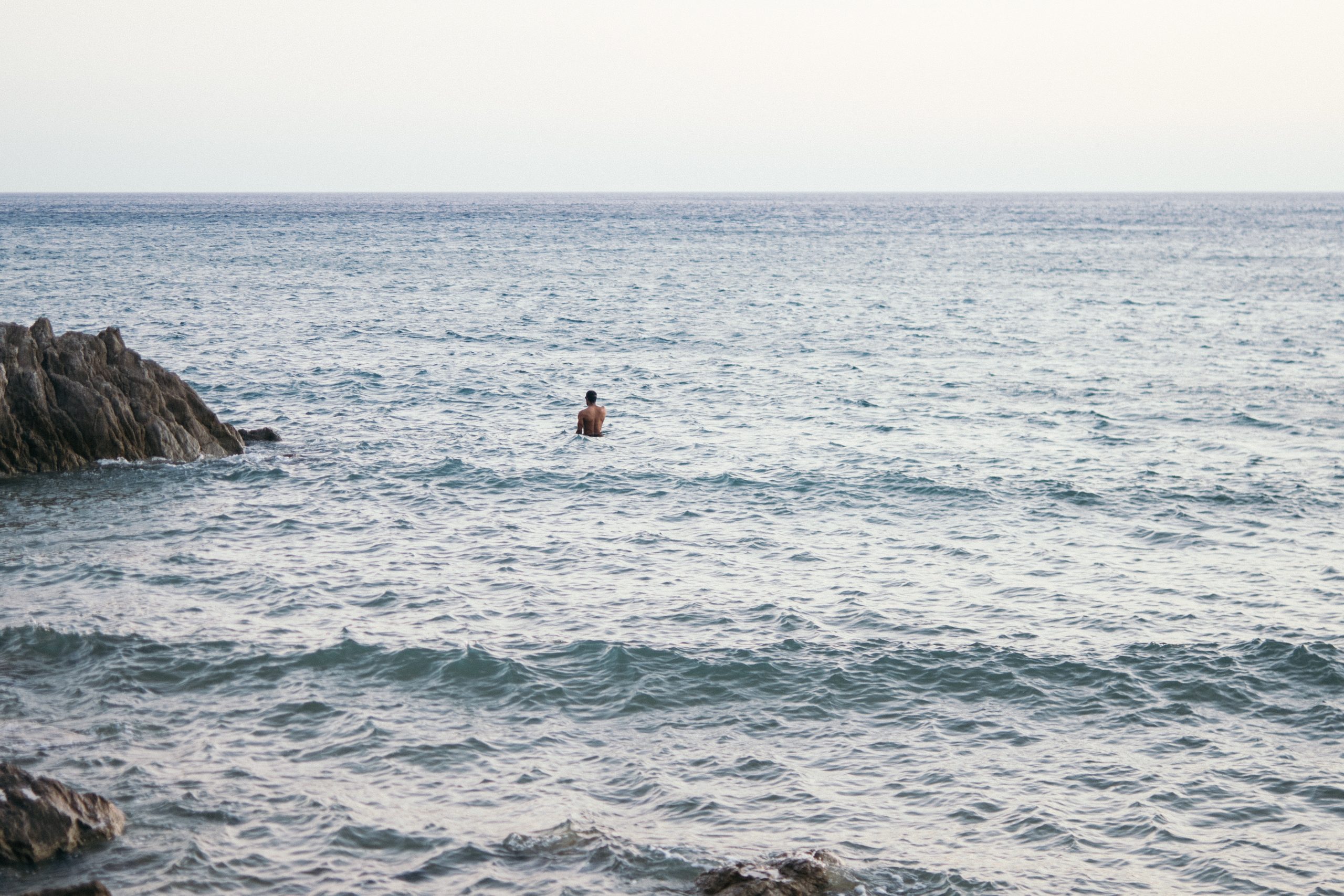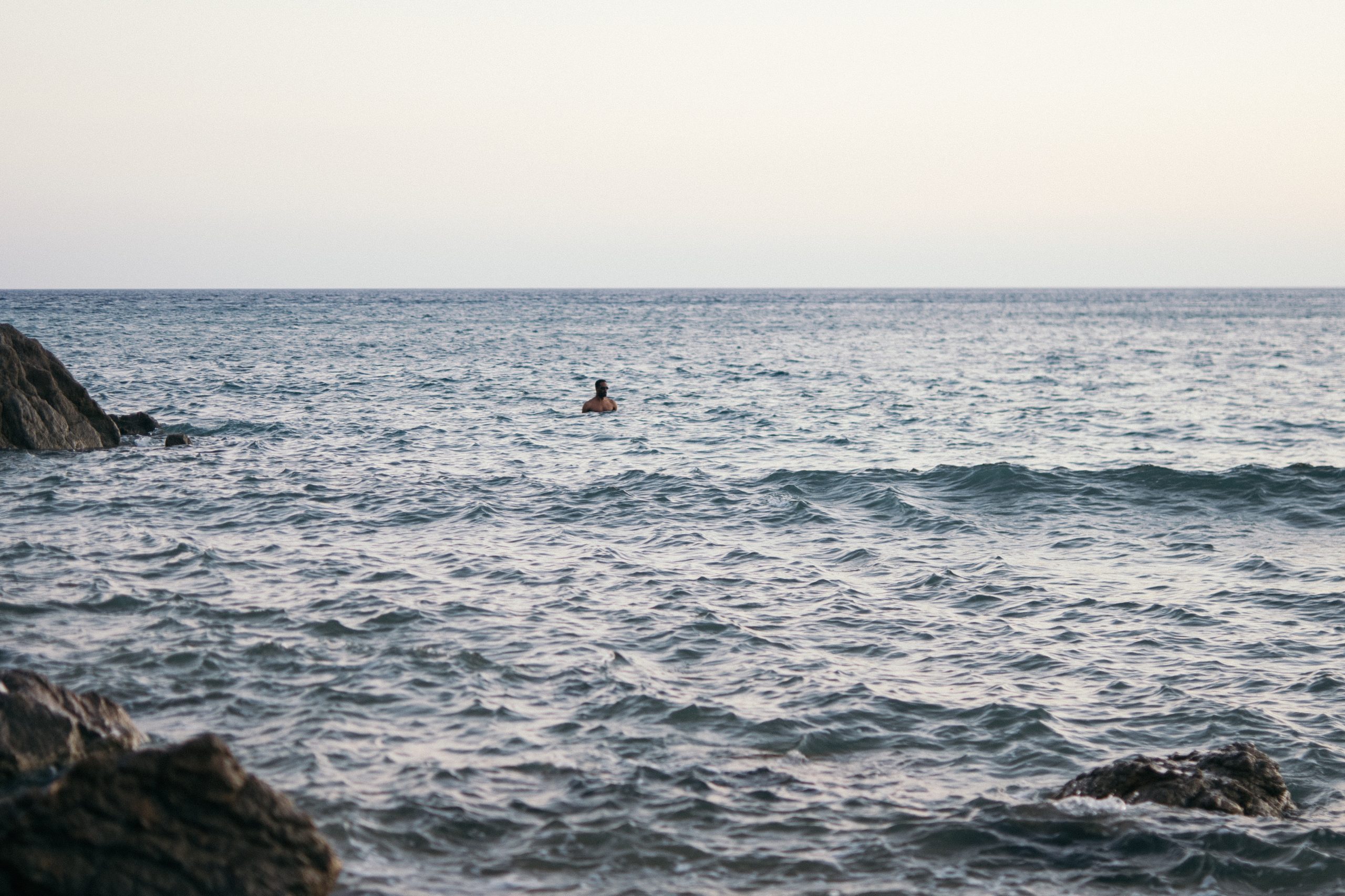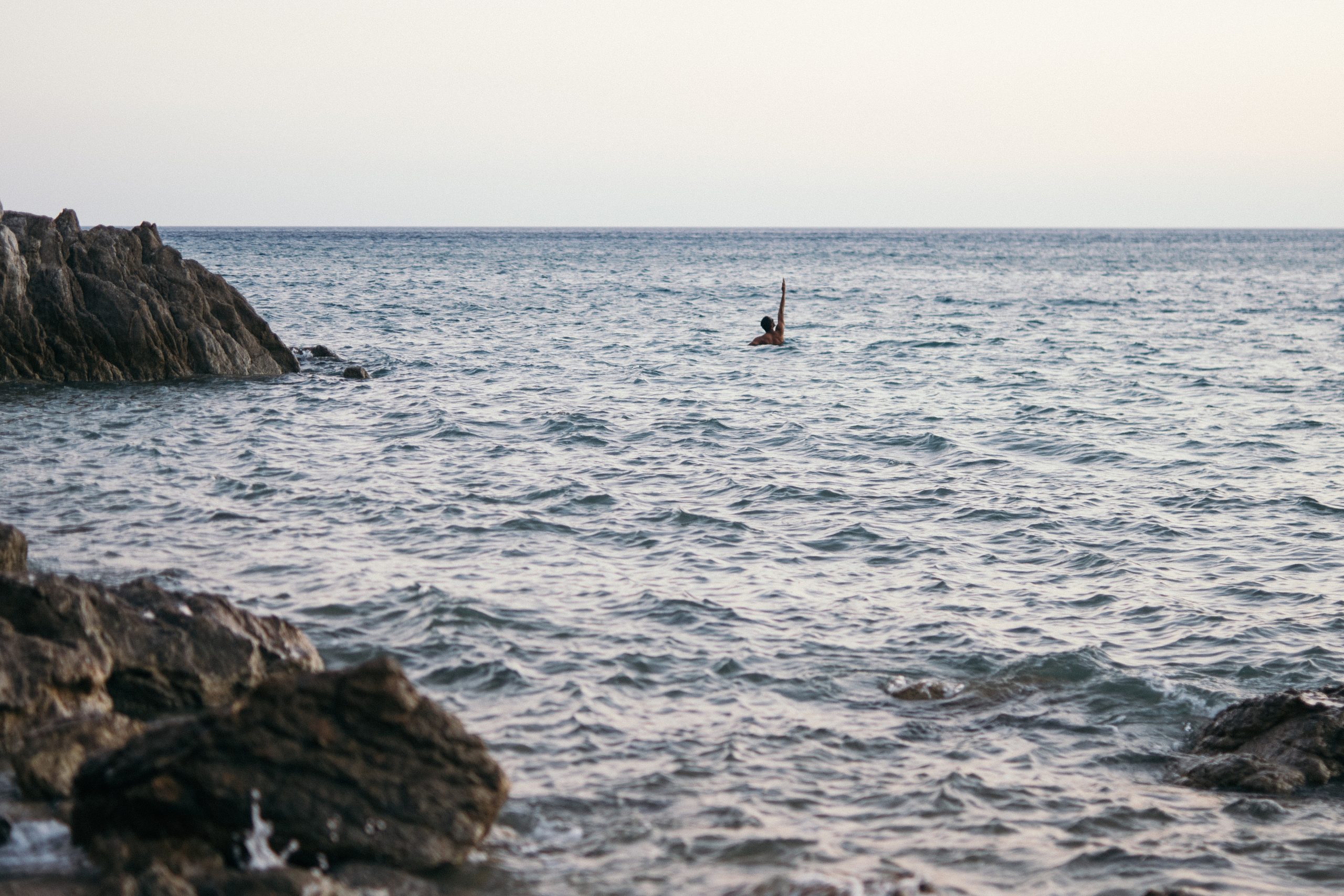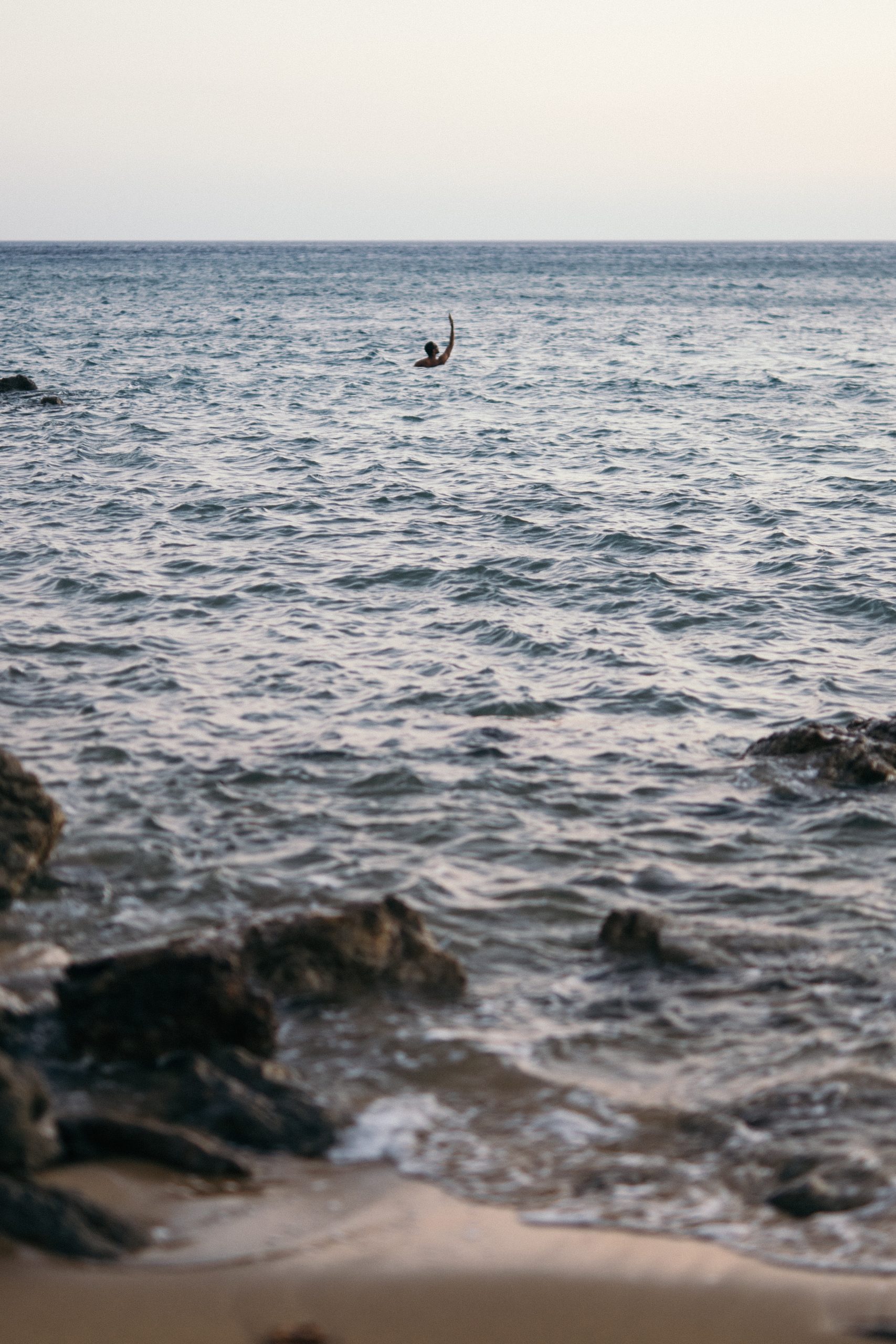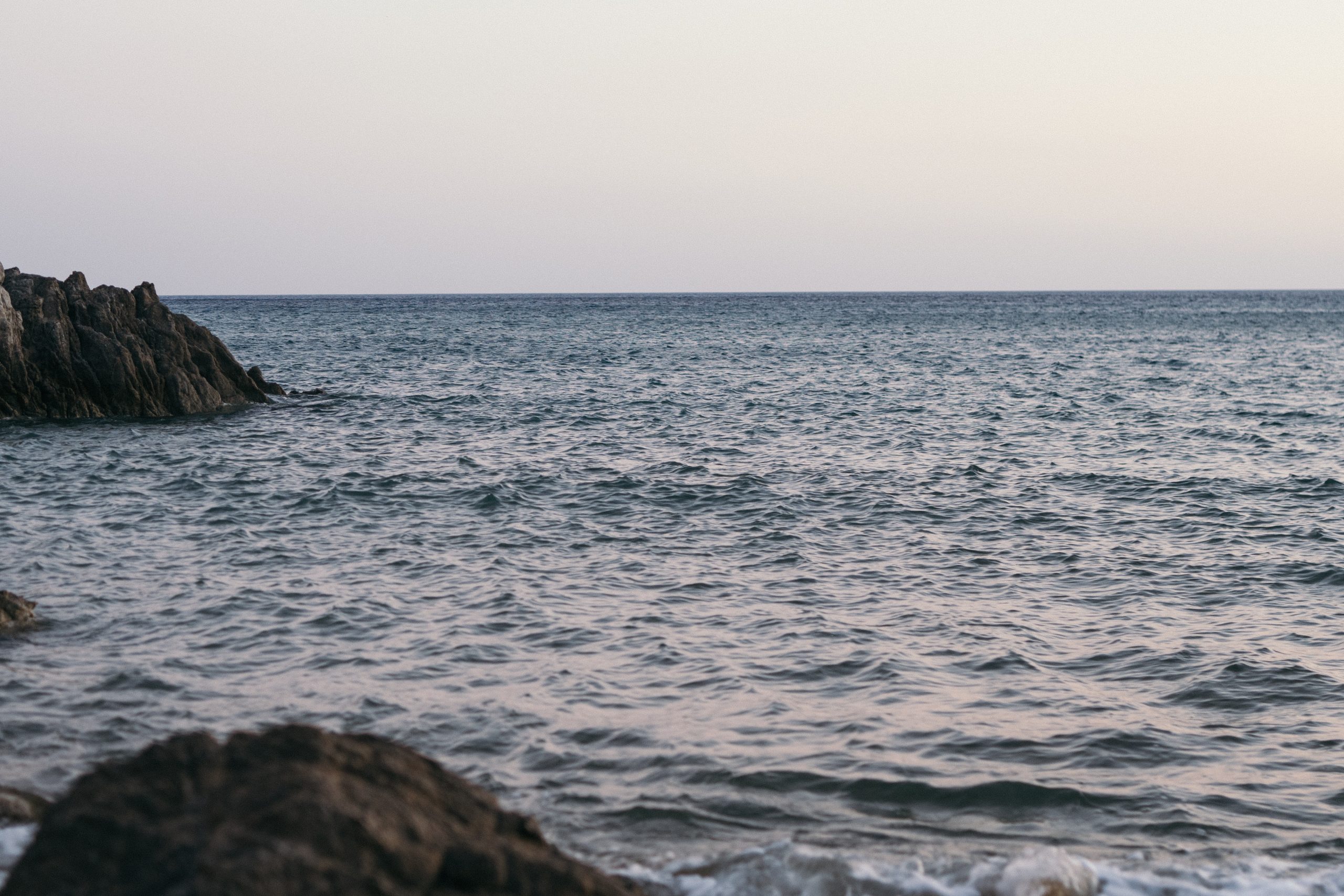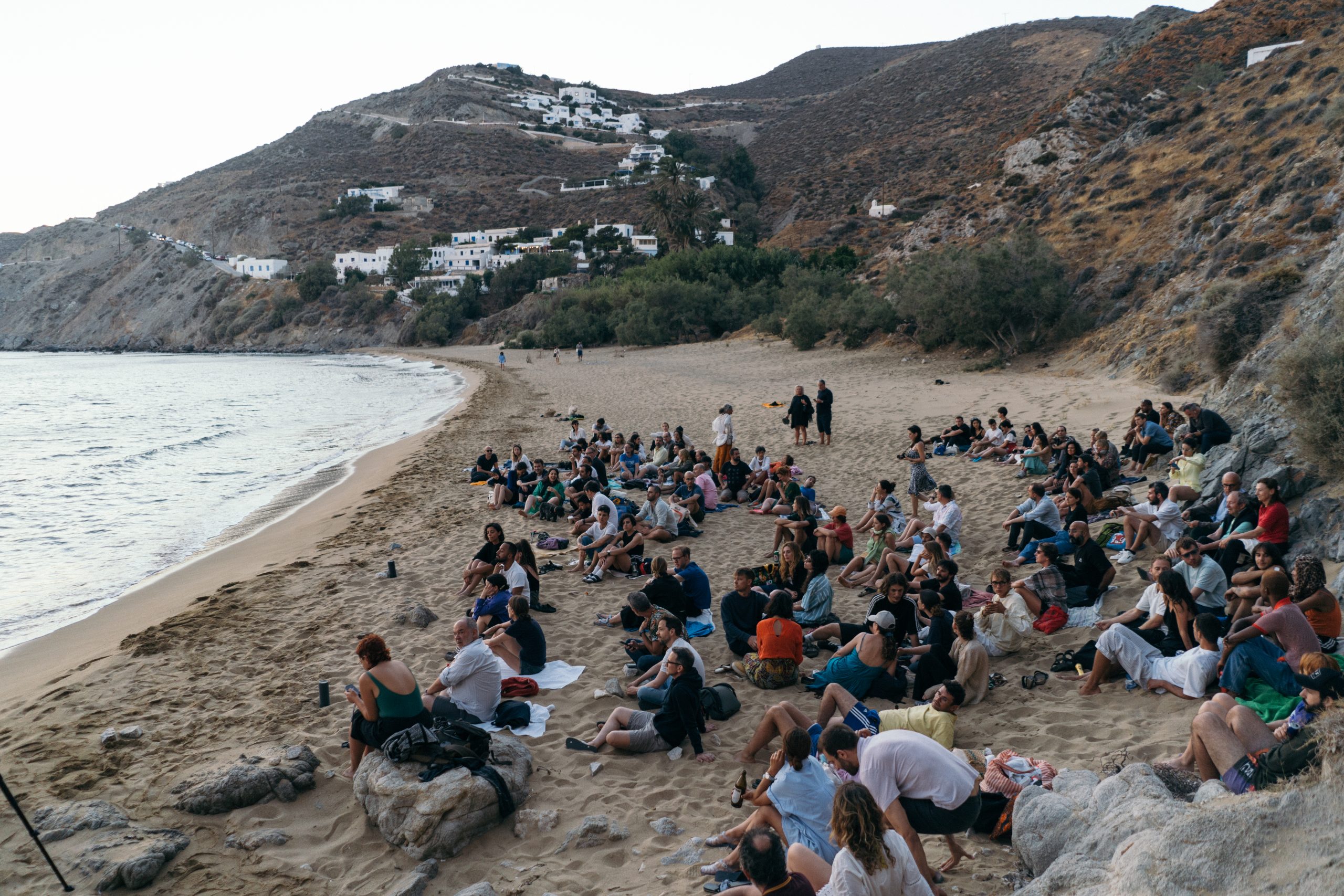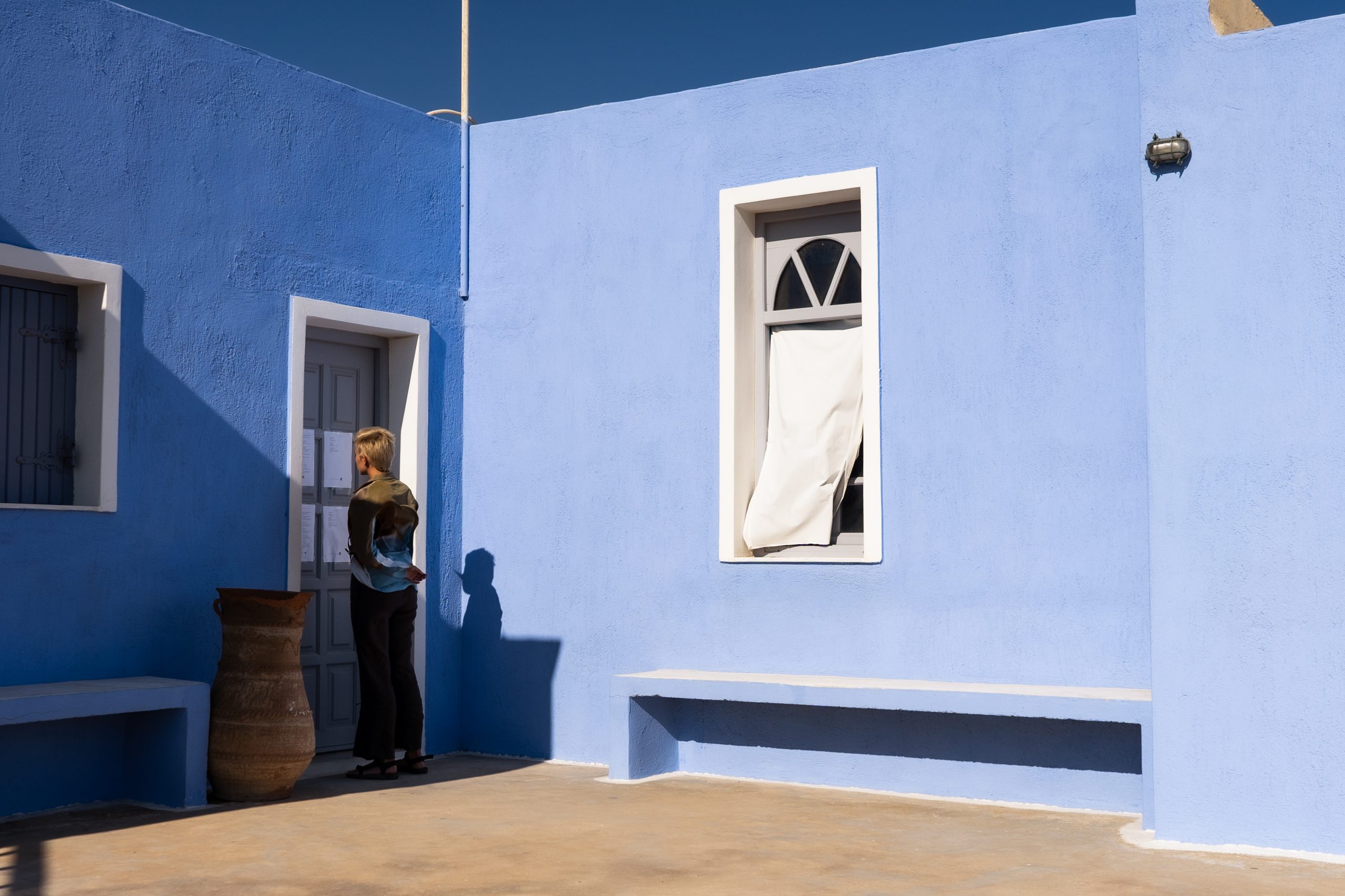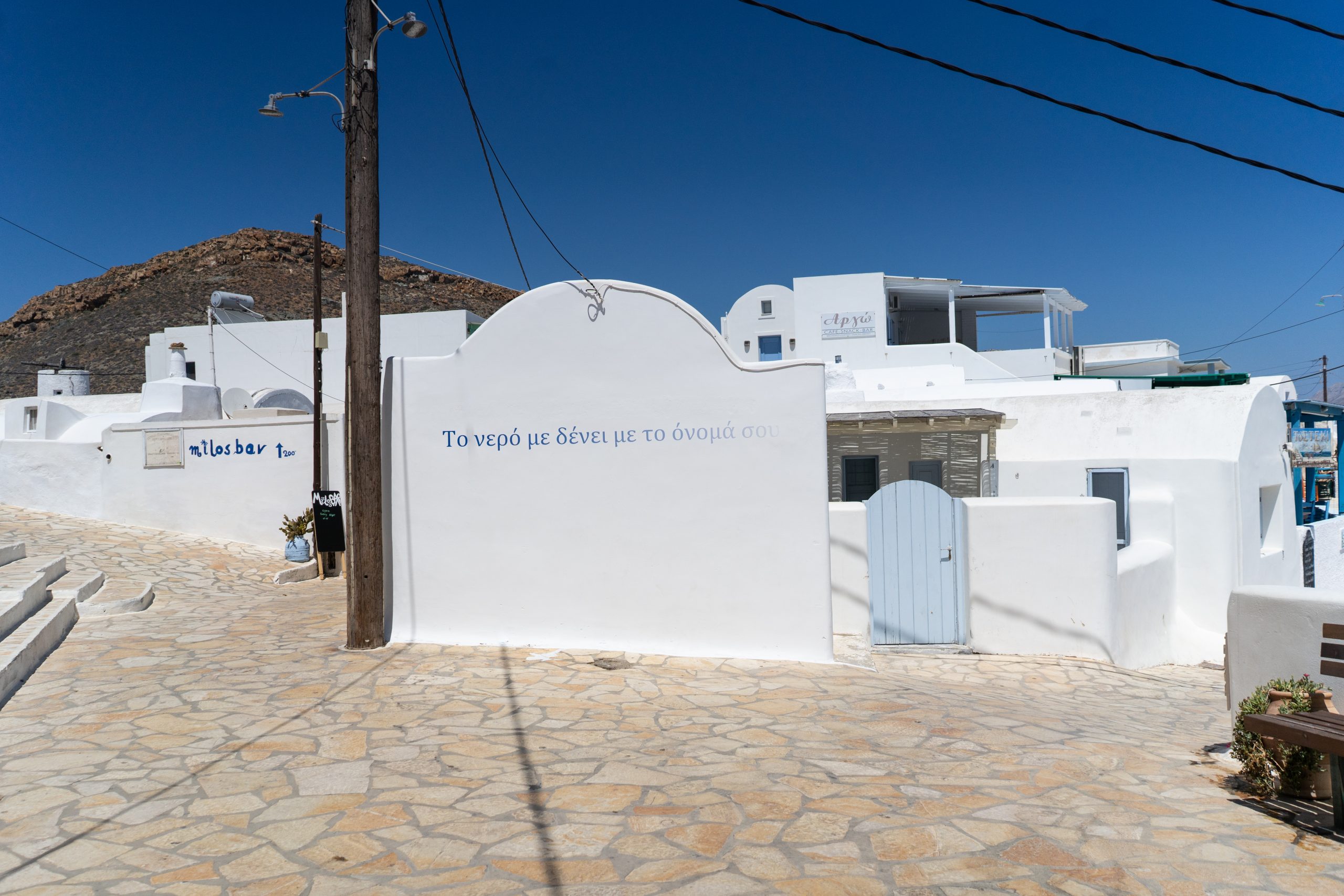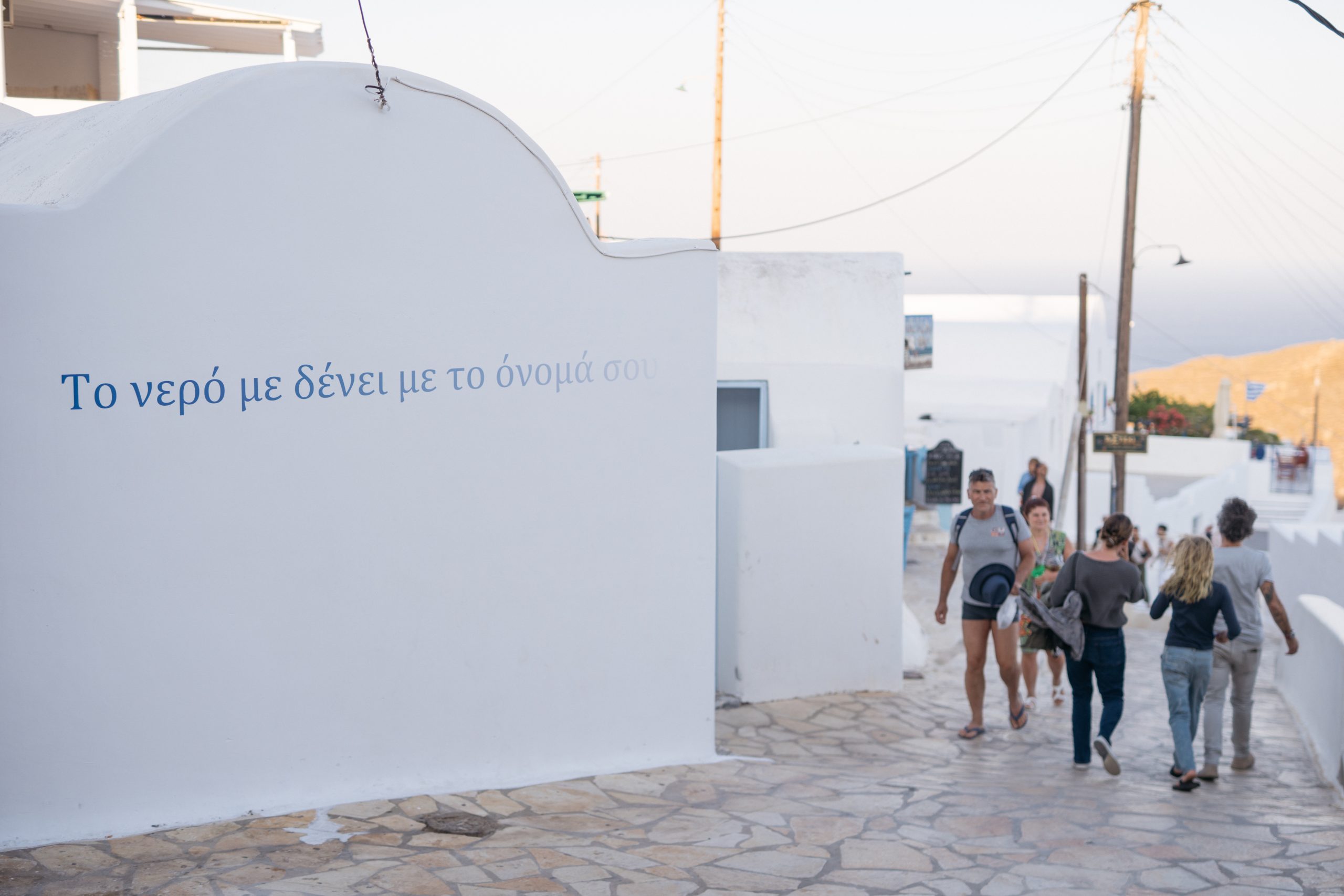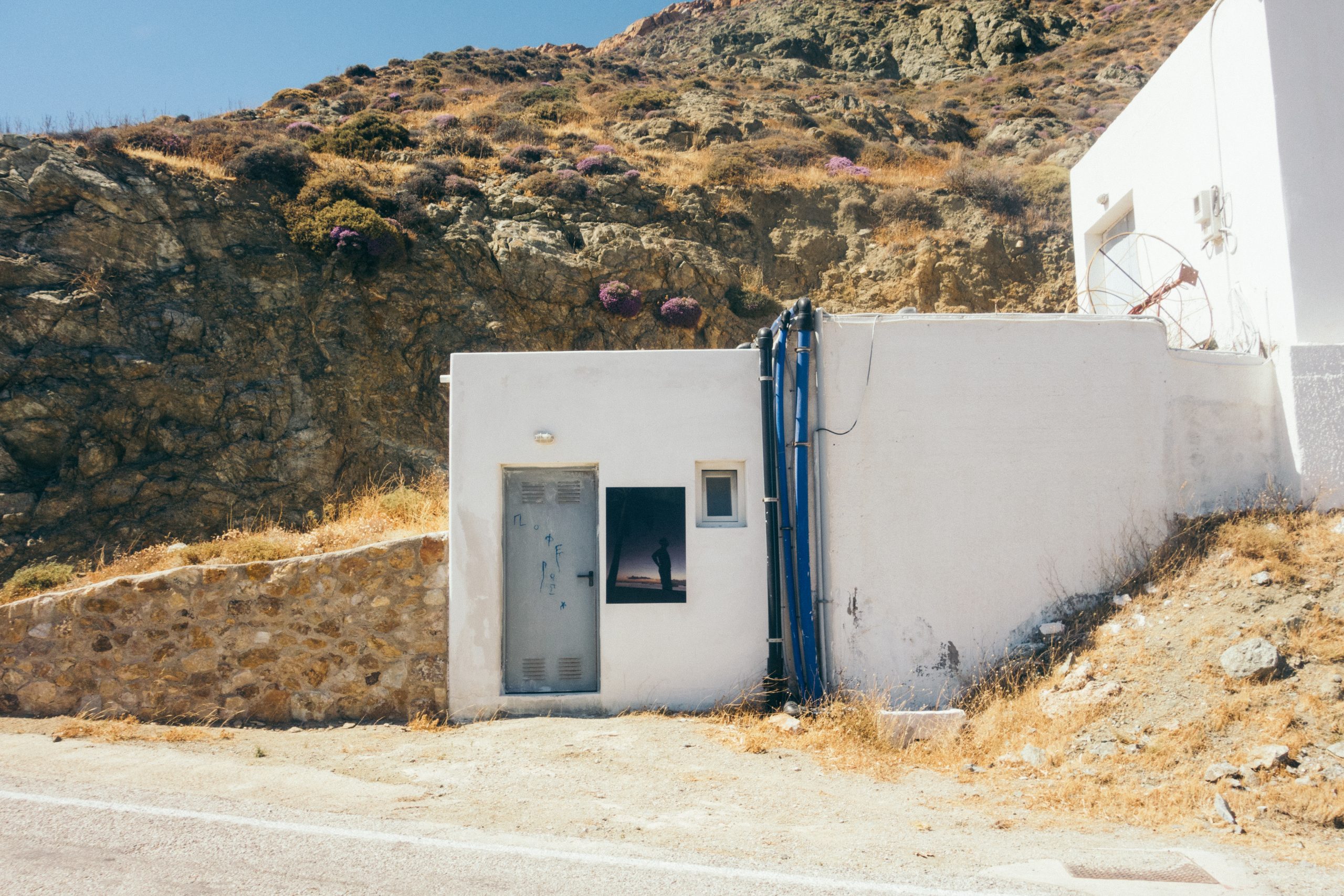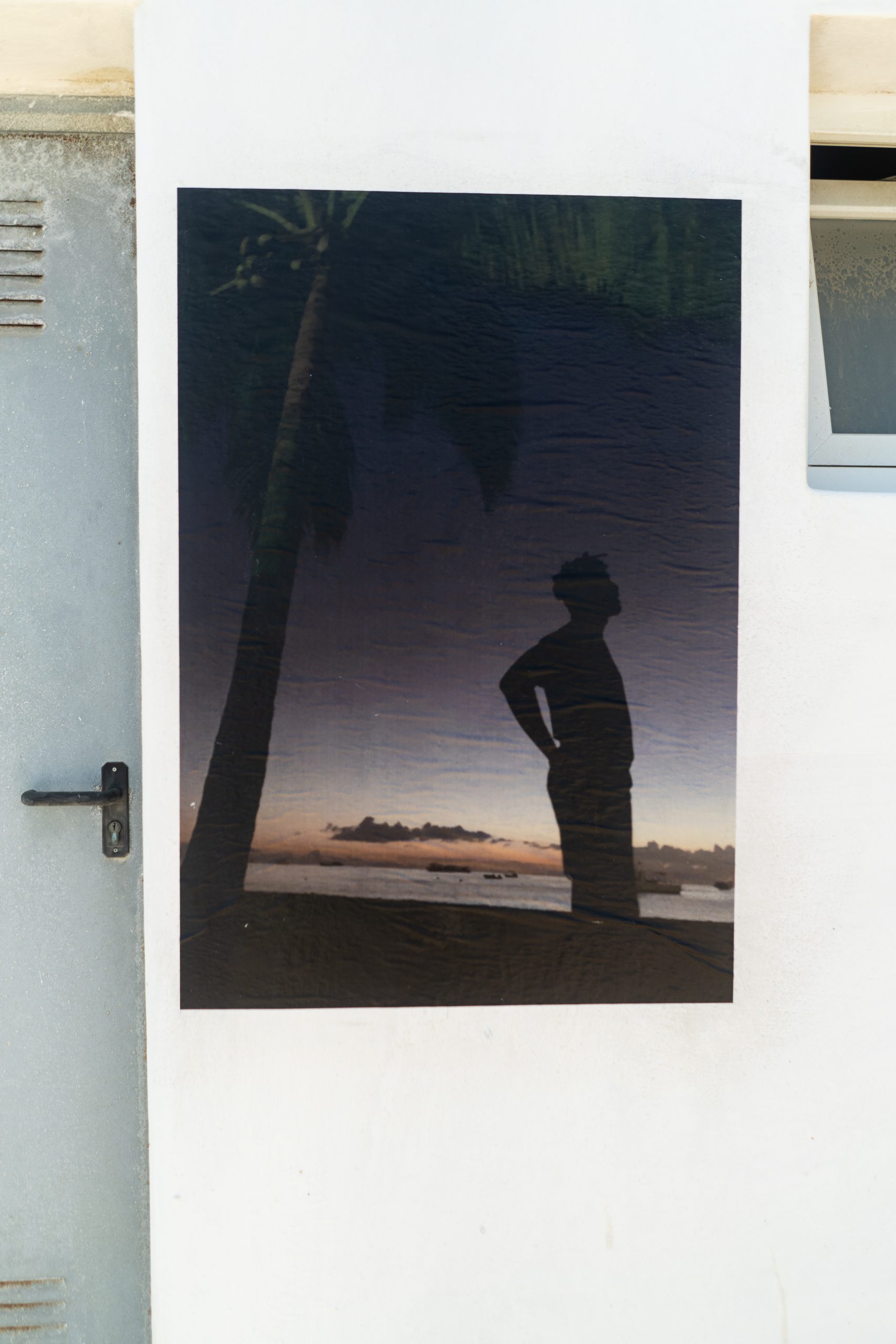Jimmy Robert
Water Binds Me to Your Name, 2022
Performance.
Water Binds Me to Your Name [Το νερό με δένει με το όνομά σου], 2022
Vinyl, 300 cm
Water Binds Me to Your Name, 2022
Sound piece, 10 mins
For Phenomenon 4, Jimmy Robert conceived the project Water Binds Me to Your Name, that comprised a performance that took place on the Klissidi beach, a vinyl installation in the village square, and a sound installation at Madres bar. You can download the audio and the text of the work.
Water Binds Me to Your Name
As a matter of etymology , the sea came first. Archipelago, a word borrowed from Italian and before that, from Greek: arkhi: chief + pelagos; sea. The chief sea for the Greeks, of course , the Aegean, a sea that happens to be full of islands.
Archipelago: another name for the Aegean sea, now used to describe scaterings and clusterings and chains of island everywhere…
when Derek Walcott calls the Caribbean the new Aegean, it is not merely a classical affectation, but a nearly literal definition of the archipelago
The caress of the water on the skin
The water is dark like me
and it’s calling me
Will I resist its call?
heaviness yet lightness
Swimming amongst ghosts
Body to body
Your skin on their skins
Your dead cells enter me
Then you leave me
Water binds me to your name
يربطني الماء باسمك
يربطني الماء باسمك
swimming is in itself an achipelagic gesture that confuses the opposition between land and water: “Swimming is understood …as natation, an English-language term that is cognate with the ancient Greek nesos(usually translated as island) the term emphasizes equally insular and mainland…not only looking out to the sea from the viewpoint of land but also looking out to land from the viewpoint of sea
It is hard to swim in these waters
Knowing what may lie beneath
The porous water
Floating not sharing their weight
Floating: a possibility?
The temptation not to sink
Heavy heart of stone
Mohamed Bezgour, Anpalagan Ganeshu, Idris Tey, Esawy Rashedal, Lenja Leci
Kalin Mohammed Fati, Khorany Abdulhabib, Taher Mohamed Zanati, Naji Dohatem
Abdoulaye Ba, Ayse Abdurrahman, M’manga Soule, Fadwa Taha Ali
More Kebba Dibanneh, Sharmake, Aboubacar Sow, Veronique Kabamba
Lazragui Khalea, Alfatehe Ahmed Bachire, Lawend Shamal, Osato Osara
Houseine Traoré, Ayse Abdulrezzak
NN NO Name NN NO Name
Water binds me to your name
يربطني الماء باسمك
يربطني الماء باسمك
Morocco Sri Lanka Tunisia Kurdistan Albania Iraq Afghanistan Egypt
Sub-Saharan Africa Senegal Somalia Comoros Syria Gambia Ethiopia Guinea
Congo Algeria Sudan Iraq Nigeria Ivory Coast Turkey
Maybe we do live in a worlds of islands which can be seen as: networks, assemblages, filaments, connective tissues, mobilities, and multiplicities…
Maybe the unity is sub-marine?
You may take the boy out of the island, but you will not take the island out of the boy
The horizon as a line to define a space, as measurement, as history
The horizon as a line to represent, or make visible or invisible
The Horizon as a mirror
When they approach me they see only my surroundings, themselves or figments of their imagination.
By strict etymology, Utopia, derived from Greek, means: no place but in English pronunciation, its homonym is eutopia: good place. Isolated as they are by the irrevocable sea, islands are well suited candidates for ideal societies- as they are for fortresses and prisons.
Until individuals are recognized as refugees, they must be given asylum, you can’t hold them in prison, as this would be a deprivation of human liberty. This is not just a point of view; it is the law, part of the universal Declaration of Human rights. It is a legal obligation.
Fear create boundaries
Boundaries create hate
Hate only serves the oppressor
Maybe the unity is sub-marine?
Maybe we need a conceptual nation to embrace those without a home.
Floating still The privilege of standing Speaking these words
Choosing these words My limit My incapacity
Yet movements, fluidity, fluidity?
Sketching an escape
yet my feet are anchored
Deep in the water
What lies beneath
Beyond the reflection
The necessity of speaking for others when they are unable to represent themselves, underscoring what gets lost forever, what becomes unknowable when there is nothing left to see.
يربطني الماء باسمك
يربطني الماء باسمك
One never free themselves from their mother tongue, the familiar. Anyone who speaks a foreign language speaks it from their own mother tongue, which may be recognizable by an accent, a word or an unusual grammatical construction but also by the gaze and the expression on a face. (yes language has a face)
Destabilizing western languages as a force through chosen poetic words is a powerful intention: Language is more interesting when not used in a pure way.
Water binds me to your name
يربطني الماء باسمك
Yemanjá (Yoruba: Yemọja) is a major water spirit from the Yoruba religion.[1] She is the mother of all Orishas. She is an orisha, in this case patron spirit of rivers, particularly the Ogun River in Nigeria; and oceans in Cuban and Brazilian orisa religions. She is often syncretized with either Our Lady of Regla[which?] in the Afro-Cuban diaspora or various other Virgin Mary figures of the Catholic Church, a practice that emerged during the era of the Trans-Atlantic slave trade. Yemanjá is motherly and strongly protective, and cares deeply for all her children, comforting them and cleansing them of sorrow.
Yemanjá is often depicted as a mermaid, and is associated with the moon (in some Diaspora communities), water, and feminine mysteries. She is the protector of women. She governs everything pertaining to women; parenting, child safety, love, and healing.
Writers and references:
Derek Walcott
Ralph Ellison, The invisible man
Barooz Boochani
Ocean Vuong
Tatiana Flores, Relational undercurrents
Tania Brugera, Migrant Manifesto, petition to Pope Francis Abdellah Taia
Kamau Braithwaite
Jason Mena
Nicolas Laughlin
Mahmoud Darwish, who am I without exile?
Abdelfattah Kilito, Je parle toute les langues mais en Arabe Wikipedia
